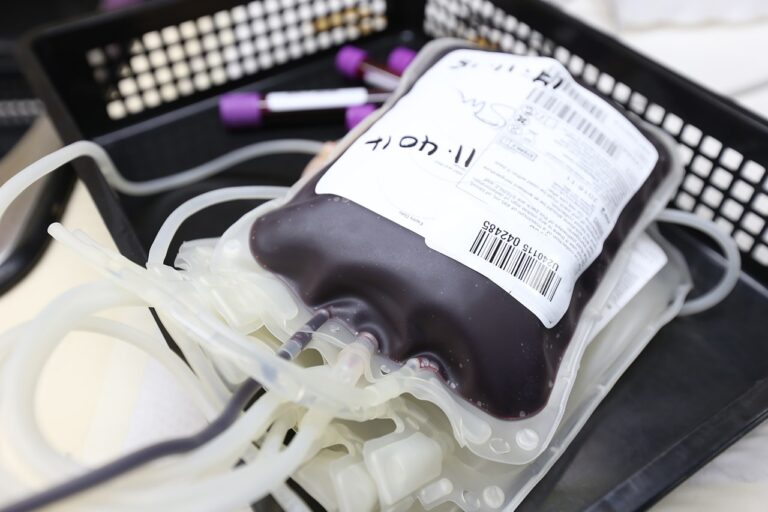Palliative Care in Singapore: Comprehensive Support for Quality of Life
Palliative Care Singapore is an approach focused on improving the quality of life for individuals facing serious illnesses, such as cancer, heart disease, or chronic conditions. In Singapore, palliative care plays a crucial role in providing relief from the physical, emotional, and psychological challenges that patients and their families endure during the end-of-life journey. This blog will explore the importance of palliative care in Singapore, the services available, and how patients and their families can benefit from this holistic form of care.
What is Palliative Care?
Palliative care is specialized medical care that focuses on providing relief from the symptoms and suffering associated with serious illness, regardless of the patient’s age or stage of illness. It is an interdisciplinary approach that includes doctors, nurses, social workers, chaplains, and other professionals working together to address the needs of the patient and their family.
Unlike curative treatments that aim to eradicate the illness, palliative care emphasizes enhancing comfort and improving the quality of life. It can be provided alongside curative treatments and is not limited to end-of-life situations. The goal is to ease the physical, emotional, and spiritual pain that often accompanies serious illnesses.
Palliative Care Services in Singapore
Singapore offers a wide range of palliative care services to cater to the diverse needs of patients. These services are designed to ensure that patients receive holistic care that respects their dignity and provides support to their families during difficult times.
1. Hospice Care
Hospice care is a form of palliative care provided to patients with terminal illnesses who have a limited life expectancy, typically six months or less. In Singapore, hospice care can be provided in specialized facilities, at home, or even in hospitals.
-
Inpatient Hospice Care: For patients who require round-the-clock medical care and supervision. Inpatient care is provided in dedicated hospice units within hospitals or standalone hospice centers.
-
Home Hospice Care: For patients who prefer to spend their final days at home, home hospice care allows healthcare professionals to provide medical care and emotional support within the comfort of the patient’s own home.
-
Day Hospice Care: For patients who require regular medical support and social interaction but do not need overnight care, day hospice programs offer day-time visits to ensure continued quality of life.
2. Hospital-Based Palliative Care
Many hospitals in Singapore have specialized palliative care teams that provide support to patients admitted to the hospital. These teams work closely with the patient’s primary medical team to manage symptoms, reduce pain, and provide emotional and psychological support.
In hospital settings, palliative care teams help with:
-
Pain and symptom management
-
Guidance on decision-making regarding treatment options
-
Providing comfort care for patients nearing the end of life
3. Palliative Care at Home
Palliative care at home is an option for patients who prefer to be cared for in a familiar and comfortable environment. Home-based care provides relief from symptoms like pain, nausea, or fatigue while allowing patients to remain close to their loved ones.
In Singapore, home palliative care services are typically delivered by healthcare professionals, including doctors, nurses, and home care aides. Services often include:
-
Symptom management and pain control
-
Emotional and psychological support
-
Support for families in managing the care process
-
Coordination with other healthcare providers, such as social workers and chaplains
4. Palliative Care in Nursing Homes
For individuals who may not be able to remain at home but do not require hospitalization, nursing homes in Singapore also offer palliative care services. These facilities provide compassionate end-of-life care for patients who are in need of long-term care but also require relief from the symptoms of serious illnesses.
The Benefits of Palliative Care
Palliative care offers numerous benefits for both patients and their families, making it an essential component of healthcare for those dealing with life-limiting illnesses.
1. Symptom Management
Palliative care focuses on alleviating symptoms such as pain, shortness of breath, nausea, fatigue, and other distressing conditions. This approach ensures that patients can remain as comfortable as possible during their illness.
2. Emotional and Psychological Support
Beyond physical care, palliative care teams provide essential emotional and psychological support. Coping with a serious illness can be overwhelming, and palliative care professionals help patients and their families navigate these challenges. Counseling and psychological support are available to address anxiety, depression, and grief.
3. Improved Quality of Life
By focusing on the relief of symptoms and providing holistic care, palliative care enhances the overall quality of life for patients. Patients can spend their time focusing on meaningful activities, including spending quality time with family and friends, rather than worrying about managing illness-related discomfort.
4. Support for Families
Palliative care doesn’t just focus on the patient but also offers support to family members. Caregivers often face significant challenges and stress, and palliative care teams provide guidance, counseling, and respite care to ease their burden. They help families make difficult decisions and offer emotional support throughout the care journey.
5. End-of-Life Care
As patients approach the end of life, palliative care provides comfort, dignity, and peace. It helps families navigate the final stages, ensuring that patients pass away with as little discomfort as possible, surrounded by their loved ones in a compassionate environment.
Palliative Care and Advance Care Planning
In Singapore, there is an increasing emphasis on advance care planning, which involves making decisions about future medical care before a serious illness arises. This can be an essential component of palliative care, especially for individuals who may face life-threatening illnesses in the future.
Advance care planning allows individuals to:
-
Express their healthcare preferences in advance, including preferences for life-sustaining treatments.
-
Appoint a proxy decision-maker through the Lasting Power of Attorney (LPA), ensuring that someone they trust can make medical decisions on their behalf if they become unable to do so.
Having these discussions early on ensures that patients receive care that aligns with their values and wishes, reducing confusion or conflict later in the care process.
Financial and Legal Support for Palliative Care
Palliative care services can incur significant costs, especially when long-term care or home care is involved. Singapore provides various subsidies and assistance programs to ease the financial burden of palliative care.
1. Subsidies for Palliative Care
The government in Singapore offers subsidies for both inpatient and home palliative care services, ensuring that those in need can access essential services without facing excessive financial strain. These subsidies help cover the costs of medical supplies, home visits by nurses, and other essential care services.
2. Medifund
For individuals who do not have sufficient financial resources to pay for their medical expenses, Medifund provides financial assistance to ensure that no one is denied medical care due to a lack of funds. This program helps with covering the costs of palliative care for those in financial need.
Frequently Asked Questions (FAQs)
Q1: What is the difference between hospice and palliative care?
A1: Palliative care is a broader approach that focuses on improving the quality of life for individuals with serious illnesses. Hospice care is a subset of palliative care provided to patients with terminal conditions who are nearing the end of life.
Q2: Can I receive palliative care at home?
A2: Yes, palliative care can be provided at home through home hospice services. A team of professionals, including doctors, nurses, and social workers, can offer care and support in the comfort of your home.
Q3: Is palliative care available in Singapore hospitals?
A3: Yes, many hospitals in Singapore have dedicated palliative care teams that provide care to patients admitted to the hospital. These teams focus on symptom management, pain relief, and providing emotional and psychological support.
Q4: How do I plan for palliative care in advance?
A4: Advance care planning involves discussing and documenting your preferences for future medical care. This includes appointing a proxy decision-maker through the Lasting Power of Attorney (LPA) and deciding on the type of care you wish to receive if you become unable to make decisions for yourself.
Q5: Is there financial assistance for palliative care in Singapore?
A5: Yes, Singapore provides subsidies and financial assistance programs like Medifund to help individuals and families manage the costs of palliative care services.
Conclusion
Palliative care plays a vital role in ensuring that individuals with life-limiting conditions in Singapore receive the highest quality of care. By focusing on physical, emotional, and psychological well-being, it helps patients and their families navigate the challenges of serious illness with dignity and comfort. With a variety of services available—whether at home, in a hospice, or within a hospital—palliative care provides a holistic approach to managing illness and improving the quality of life.







